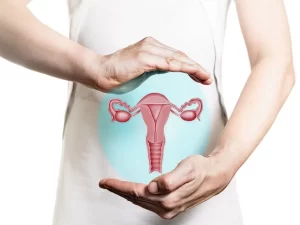
T cell levels are well-maintained and antibody levels are higher following a longer interval
Universities of Sheffield, Oxford, Liverpool, Newcastle, and Birmingham, with support from the UK Coronavirus Immunology Consortium, published a pre-print study on ‘Cell Press Sneak Peak’. The study shows that both short and long dosing schedules of the Pfizer COVID-19 vaccine generate strong antibody and T cell immune responses.
It is one of the most comprehensive studies into the immune response generated by the Pfizer COVID-19 vaccine to date and has found T cell levels are well-maintained and antibody levels are higher following a longer interval between the first and second dose of the Pfizer COVID-19 vaccine. This is despite a significant drop in antibody levels between doses.
The ‘Protective Immunity from T cells to COVID-19 in Health workers study’ (PITCH) was supported by Sheffield Teaching Hospitals NHS Foundation Trust and examined how antibody and T cell levels change over time following either a ‘short’ (three-four weeks, average of 24 days) or ‘long’ (six-14 weeks, average of 70 days) interval between the first and second dose of the Pfizer COVID-19 vaccine. Of the 503 healthcare workers recruited to the study, 223 (44 per cent) had previously had COVID-19.
Regardless of the dosing schedule, the study found levels of antibodies and T cells varied significantly from person to person, which may depend on genetics, underlying health conditions, and past exposure to COVID-19 and other viruses. This underlines the importance of everyone getting two doses of the Covid-19 vaccine to maximise the protection, particularly against variants of concern. Follow up of this cohort six and 12 months after vaccination is needed to investigate longer-term immune response, as well as whether it translates to lower or less severe infection rates.
Dr Thushan de Silva, Study Author, Senior Clinical Lecturer in Infectious Diseases, University of Sheffield’s Department of Infection, Immunity and Cardiovascular Disease, and Honorary Consultant Physician in Infectious Diseases at Sheffield Teaching Hospitals NHS Foundation Trust, said, “Our study shows the value of studying both antibody and T cell responses following SARS-CoV-2 vaccine, particularly to understand the multiple mechanisms of protection there may be against new variants of concern. The longer dosing interval that the UK has adopted appears to result in higher antibody levels after the second dose when compared to the shorter interval. Real-world data from Public Health England demonstrates the Pfizer COVID-19 vaccine is effective at reducing levels of serious disease, hospitalisation and death, even after one dose. Understanding the underlying immune response generated by different dosing schedules will help maximise future protection, tackle new variants of concern and prevent reinfections.
Dr Rebecca Payne, Study author from Newcastle University, said, “We found an interesting pattern in the levels of immune cells present. Our study provides reassuring evidence that both dosing schedules generate robust immune responses against SARS-CoV-2 after two doses. For the longer schedule, the antibody levels dropped off between the first and second dose, which included the loss of any neutralising effect against the Delta variant. However, T cell responses were consistent, indicating they may contribute to important protection against SARS-CoV-2 during this time.”
Payne added, “After the second dose on the longer dosing schedule, antibody levels surpassed those seen at the same time point after a shorter dosing interval. Although T cell levels were comparatively lower, the profile of T cells presents suggested more support of immune memory and antibody generation. We now need to carry out more follow up studies to understand the full clinical significance of our findings.”
Professor Susanna Dunachie, PITCH study lead, University of Oxford, said, “The study would not have been possible without collaboration between the researchers across all five universities. It has allowed us to bring clinical cohorts together and conduct one of the most in-depth analyses of the immune response to a COVID-19 vaccine yet.”






